|
|
|
Editor's note
|
|
“Bohemian Rhapsody,” the biopic of Queen frontman Freddie Mercury, is released this weekend. While Mercury is best known for his soaring vocals, readers might be surprised to learn that he came from a family of Zoroastrians. University of Florida religion professor Vasudha Narayanan tells the story of the ancient Persian religion that influenced Christianity, Islam and Judaism, but has only around 150,000 adherents today.
Eighty years ago, everyone was going crazy for Seabiscuit. The thoroughbred was a late bloomer, but eventually hit his stride and was voted 1938 Horse of the Year. Steven Tammariello heads the Institute for Equine Genomics at Binghamton University. After recently gathering Seabiscuit’s DNA from a most unlikely source, he and his team are piecing together some of the performance genes that made the horse a star.
One of our obsessions at The Conversation is understanding how scholars find their fields of study. This week, Sarah Cook of Georgia State University, a respected expert on violence against women, picks up that theme. Cook tells us the story of how the beginning of her career was forever altered by a violent attempted rape – and how the #MeToo movement has affected her both personally and professionally.
|
Nick Lehr
Arts + Culture Editor
|

|
|
Top stories
|

Freddie Mercury, born Farrokh Bulsara, came from a family of Zoroastrians.
atelier nerodimARTE/flickr
Vasudha Narayanan, University of Florida
Born Farrokh Bulsara, Mercury came from a Parsi family that practiced Zoroastrianism, a religion that influenced Judaism, Christianity and Islam.
|

Eighty years ago, Seabiscuit trounced Triple Crown winner War Admiral.
AP Photo
Steven Tammariello, Binghamton University, State University of New York
The US went crazy for Seabiscuit when he won his famous 1938 match race against War Admiral. Now researchers are investigating the thoroughbred's DNA to see what made him such an unlikely success.
|
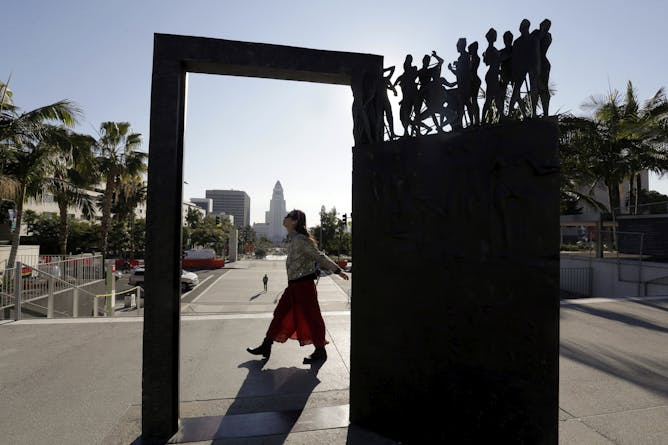
A woman walks past Robert Graham’s sculpture, ‘Dance Door,’ in Los Angeles, 2015.
AP Photo/Nick Ut
Sarah L. Cook, Georgia State University
A well-known scholar of violence against women describes her own harrowing assault – and how the #MeToo movement changed her professionally and personally.
|
Politics + Society
|
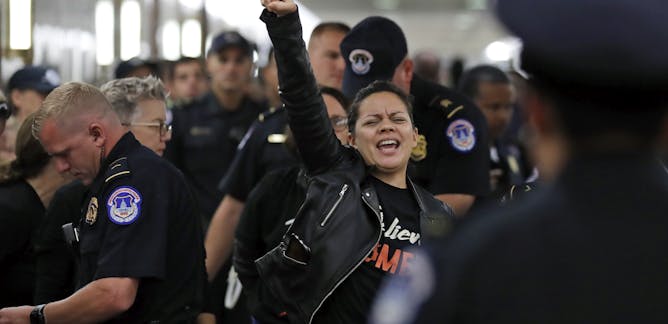
Jennifer Lynn McCoy, Georgia State University
A polarized electorate is divided into tribal camps that demonize each other. That's the setting for the upcoming midterm elections. If the US continues down this path, democracy will suffer.
| |

Daniel J. Mallinson, Pennsylvania State University; Lee Hannah, Wright State University
Midterm voters in Utah, Missouri, Michigan and North Dakota will decide whether to join the 31 US states that have some form of legal marijuana. But ballot initiatives can only take pot so far.
|
|
|
Education
|
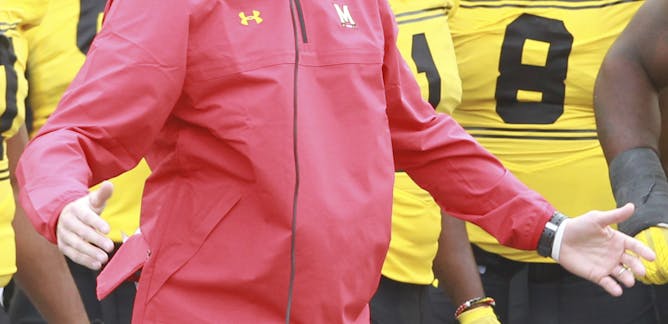
Joseph Cooper, University of Connecticut; Jasmine Harris, Ursinus College
Even though Maryland college football coach DJ Durkin has been fired, his 11th hour ouster will not rid college football of some of its deepest problems, argue two scholars on race and college sports.
| |

Jacob William Faber, New York University; Peter Rich, Cornell University
The odds of foreclosure double for families who send their kids off to college, according to two researchers who say their findings show a need for new ways for Americans pay for higher education.
|
|
|
Science + Technology
|

Antonis Rokas, Vanderbilt University
There is more to sex than male and female. For some species there are hundreds and even thousands of sexes and mating types.
| |

Jennifer Grygiel, Syracuse University
Twitter and Facebook have said they will take steps to fight hate and abuse on their sites, but they have not yet adequately addressed the problem.
|
|
|
Health + Medicine
|
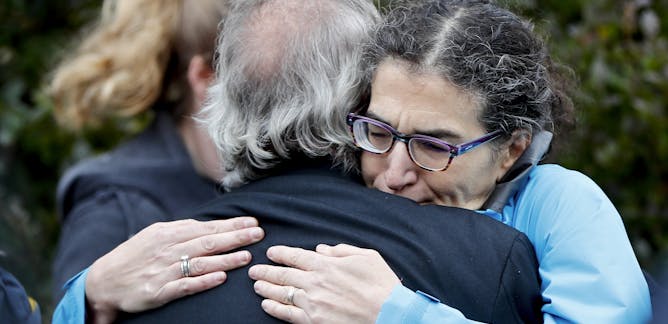
Richard Gunderman, Indiana University
Fred Rogers was not blind to evil, but he still taught love in the face of it. His real neighborhood under attack, his neighbors showed love and forgiveness that can teach and inspire us all.
| |

Suan-Sin Foo, University of Southern California; Weiqiang Chen, University of Southern California
There is no vaccine or medicine for Zika. But researchers have identified factors in the blood that signal a fetus has Zika-related birth defects, helping mothers decide whether to terminate a pregnancy.
|
|
|
Ethics + Religion
|
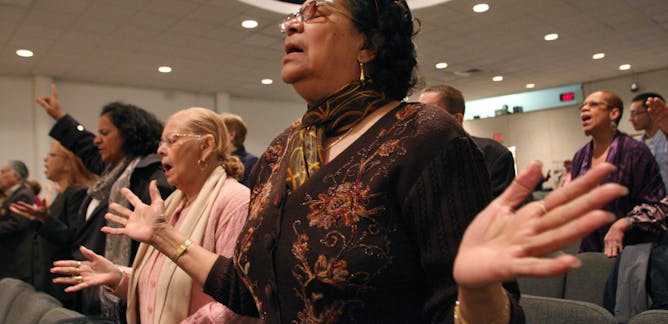
Janelle Wong, University of Maryland
Two of the fastest growing segments of the American population Latino and Asian-American voters - also are part of evangelical America. Their views on immigration are very different.
| |
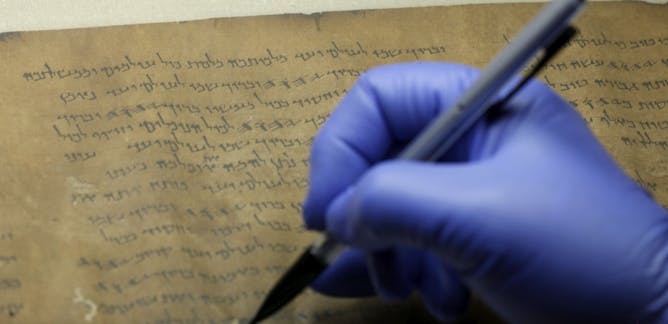
Daniel Falk, Pennsylvania State University
Five of the Dead Sea Scrolls at the Museum of Bible were found to be forged. The scrolls are considered priceless. Here's why.
|
|
|
Arts + Culture
|
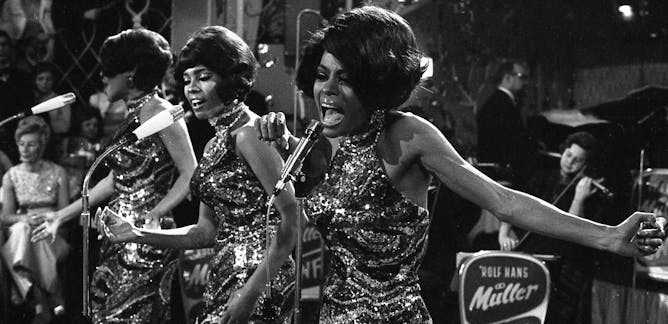
Michael V. Drake, The Ohio State University
Fifty years ago, Sly and the Family Stone sang 'We got to live together, I am no better and neither are you.' The words ring just as true today.
| |

Sahar Khamis, University of Maryland
Will it embolden or neuter the Arab world's autocratic regimes?
|
|
|
Economy + Business
|

Jonathan Meer, Texas A&M University
Donor premiums are a common fundraising tactic. But recent research suggests that they are not cost-effective.
| |

Einav Rabinovitch-Fox, Case Western Reserve University
Sears and other department stores not only changed how Americans consumed but altered the very nature of society and culture as well.
|
|
|
Environment + Energy
|

David McConnell, The College of Wooster; Marilyn Loveless, The College of Wooster
Many Americans view the Amish as living simply and in touch with the land, but their views about the environment are complicated and not always 'green.'
| |

Matthew Wallenstein, Colorado State University; Cynthia Kallenbach, McGill University; Peter Olayemi, Colorado State University
Leftover lactose from cheese production shows early promise as a treatment that can help soils retain water and nutrients, making them more resistant to drought.
|
|
|
| |
| |
| |
| |
| |
| |
|
|
|
|
|
|
|